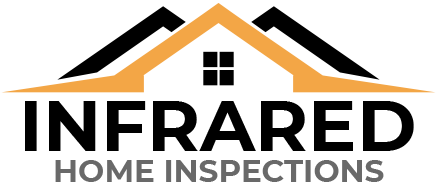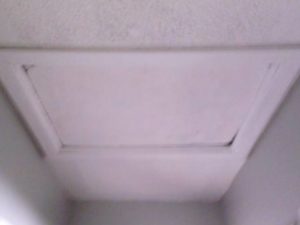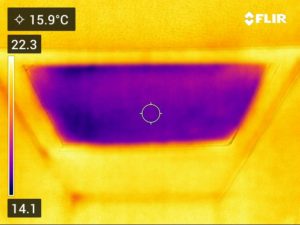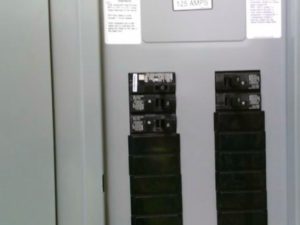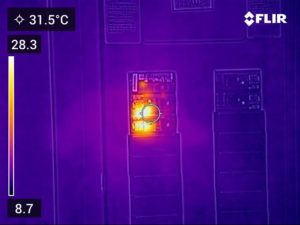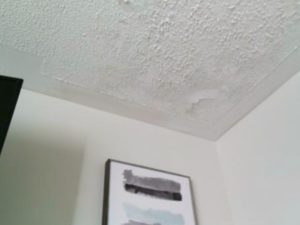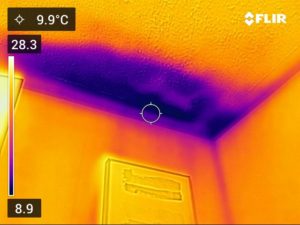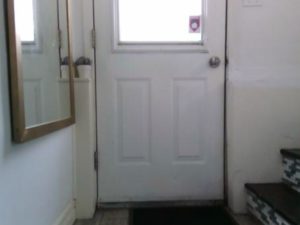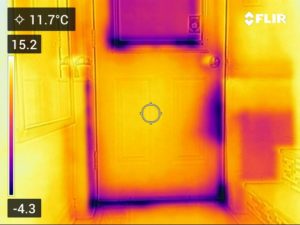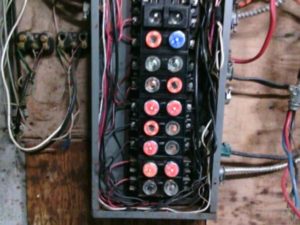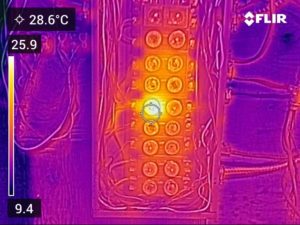Whether you’re buying real estate as an investment, purchasing it to be your personal home, or whether you’re the seller, the valuable opinion of a qualified expert can help you overcome problems, find solutions and take a more pro-active approach to help you avoid costly mistakes. Infrared Home Inspections will help you understand the overall condition of your property so that you are well equipped to deal with any issues that may arise.
We use cutting edge technology and all the right tools during the inspection.
- Infrared Thermal Imaging
- Moisture Meter
- GFCI/AFCI Receptical Tester
- Voltage Tester
- Endoscope
- Gas Detectors
- Ladders
Radon is a cancer-causing radio-active gas that has no taste, smell or color. Being invisible, the only way to find out if high levels are present in the home is with testing. A study by Health Canada concluded that 20% of homes in New Brunswick contained unsafe levels of radon. Radon is the second leading cause of cancer behind smoking and is linked to 16% of all lung cancer deaths.
Radon comes from the breakdown of radioactive elements such as uranium in soil and rocks. As the elements decompose, they create radon gas which rises to the earth’s surface entering the home through tiny cracks in the foundation. It then becomes trapped, building up and attaching to dust particles in the air which are inhaled into the lungs.
Let us give you peace of mind for you and your family’s safety by testing your potential home.
Water quality testing identifies contaminants and prevents water borne diseases that can make you or members of your family sick. Essentially, adding water quality testing to your home inspection ensures your water is safe. All water for human and animal consumption should be tested for safety. Infrared home inspections will take a water sample and have it analyzed at a local lab. The results of the lab report will be emailed to the client and their realtor at the end of the next business day.
The most vital and often dangerous system in the home. Unsafe panels and electrical systems can lead to fire. We start by taking the panel cover off to perform an infrared thermal imaging scan. This will detect any hotspots that can potentially be dangerous of even fatal.
- Electric meter and base
- Service entrance conductions
- Main service disconnect
- Panel boards and breakers
- Service grounding and bonding
- GFCI’s & AFCI’s
- Overhead service conductors and attachment
- Electrical Defects & Safety Hazards
A good roof doesn’t just protect us from the elements, it is specifically designed to breath and react to harsh Canadian winters. Our home inspection will assess the condition of the roof covering material reporting any evidence of leaking, wear, missing shingles, damage or any other issue. Most commonly leaking occurs when flashing fails at roof penetrations.
- Roof covering, flashing, plumbing vent pipes
- Gutters and downspouts
The exterior of your home is what gives you that desired curb appeal. It also protects you and your family from the elements and provides security. This is where we begin our inspection walking the perimeter checking for foundation cracks, grading, moisture problems and condition of windows and siding. We thoroughly look for any damage or missing components and anything else which can effect the function and safety of your home.
- Eaves, soffits and facia, wall coverings
- Vegetation, surface drainage
- GFCIs and electrical
- Walkways and driveways
- Stairs, steps and stoop
- Porches, Patios and decks
- Railings, guards and handrails
- Windows, exterior doors and dryer exhaust hoods
We will check the type and condition of the heating and cooling systems. Poorly functioning systems can be inefficient for your power consumption. Small things like a furnace cleaning or dusting a heat exchanger can help your system run more for efficiently.
- Emergency Shut Off
- Thermostats
- Disconnects
- Condensate Discharge
- Ductwork
- Insulation in the attic
- Structural components and observations
- Ventilation in Attic
- Switches, fixtures and receptacles
- Floors, Walls and Ceilings
- Stairs, steps, stoops, stairways
- Railings, guards and handrails
- Presence of smoke and COZ detectors
Defective plumbing can manifest itself in different ways: leaking, clogging, cross-contaminated water and freezing pipes. A leaky faucet or old toilet can waste a lot of money and energy for any residence. A leaking, damaged or frozen pipe could cause major damage to your home and belongings. Through a comprehensive visual inspection of the piping and with the use of thermal imaging we will be able to detect these issues. We will also test the water pressure in your home, check all faucets and fixtures.
- Main water shut off valve, water supply
- Hot water source
- Drain, waste, and vent systems
- Water supply and distribution systems
The foundation of your home is the most import aspect of your house for you and your family’s safety. Damage, improper sizing, improper materials and other factors can lead to everything from unsightly cracks, to complete structural failure of the home. Through an in-depth investigation into the integrity of the foundations, footings, columns, beams and all other visible and readily accessible structural members we can ensure the house a safe home for you and the ones you love.
We run all taps and shower heads at the same time for a water pressure test. After letting everything run for a few minutes we take an infrared thermal imaging scan to help uncover any active plumbing leaks. We make sure that the bathroom fan is venting outside.
- Toilets
- Sinks, tubs and showers
- Exhaust fan and windows.
- GFCI
- Cabinets, ceiling, walls and floor
- Door
We inspect the clothes washer to make sure it works and if there is any active leaks. We inspect the dryer, the exhaust pipe making sure it is exhausting outside.
In the kitchen we check all appliances to make sure they are working properly. We also check the plumbing and make sure the plugs are GFCIs (Ground Fault Circuit Interrupter).
- Taps and Sink
- Range/Oven/Cooktop
- Refrigerator and dishwasher
- Countertops and cabinets
- Floors, Walls & Ceilings
The chimney of your home is of vital importance because it makes sure poisonous gasses are escaping safely. The inspection starts with safety making sure there are working fire alarms and carbon monoxide detectors. We then do an examination of the chimney exterior, interior and the chimney connection. All fireplaces, fuel burning stoves and chimneys are recommended to be inspected no less than annually.
- Rain Cap
- Flue Liner
- Lintel
- Hearth
- Clean out Damper
What is Thermal Imaging?
Infrared (thermal imaging) is an advanced, non-invasive technology that allows the inspector to show homeowners things about their homes that can’t be revealed using conventional inspection methods.
In terms of energy loss, an IR camera can detect:
- heat loss and air infiltration in walls, ceilings, floors, windows and doors;
- damaged and/or malfunctioning radiant heating systems;
- air-conditioner compressor leaks;
- under-fastening and/or missing framing members, and other structural defects that can lead to energy loss; and
- broken seals in double-paned windows.
In terms of detecting moisture intrusion, an IR camera can locate:
- plumbing leaks;
- hidden roof leaks before they cause serious damage;
- missing, damaged and/or wet insulation; and
- water and moisture intrusion around penetrations and at the foundation and building envelope that could lead to structural damage and mold.
IR cameras are equally effective at locating hot spots in the home, including:
- circuit breakers in need of immediate replacement;
- overloaded and undersized circuits;
- overheated electrical equipment and components; and
- electrical faults before they cause a fire.
Additionally, based on the color gradients that thermal images provide, an inspector can locate:
- possible pest infestation, as revealed by energy loss through shelter tubes left by boring wood-destroying insects;
- the presence of intruders, such as rats, mice and other larger pests hiding within the structure and detected because of their heat signature that the IR camera captures; and
- dangerous flue leaks, which can lead to carbon monoxide poisoning of the home’s residents.
Not an X-ray
Thermal Imaging IS NOT X-RAY VISION!! The conditions for thermal imaging have to be right for it to fully show problem areas. Because of this, I may not see it on the camera the first time. The perfect condition to find water intrusion is after a rainy day or a warm day after a winter freeze. Don’t be surprised if I don’t see the water intrusion area after a few weeks or month dry spell. If you suspect an area was missed, please let me know and I will check it out for no extra charge.
"Geoff was very professional and thorough. He was extremely knowledgeable and diligent in his work. The report was detailed and put my mind at ease by detailing all of the issues. The price was reasonable for what I got and Geoff was available to answer all of my follow up questions. Thank you!"
Lennox Young
"Called and Geoff came out the next day. He explained all of the issues he found and his report was very detailed. Incredibly professional and thorough."
Sam Adair
Extremely satisfied with Geoff's service. He has high professional standards, is friendly, and always ready to answer questions. His inspection report was very detailed and informative.
